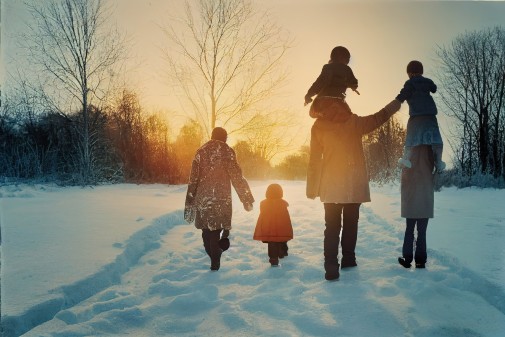Low-income families continue to be hardest hit by the cost of living crisis as inflation stays high, according to new research from the University of York.

Drawing on the testimonies of over 100 families and analysis by the Resolution Foundation, the researchers found that the crisis is far from over for low-income families as winter approaches, with the poorest households spending twice as much (as a share of their total spending) as better-off households on housing, water, electricity and food.
The new report is published by the Changing Realities project, a collaboration between parents and carers, researchers at the universities of York and Salford, and Child Poverty Action Group.
Autumn statement
It calls on the Chancellor to address the crisis facing families in his forthcoming autumn statement, by increasing benefits in line with inflation and ending the freeze on the Local Housing Allowance. The report also calls for an end to one-off, flat- rate, emergency payments and for these to be replaced with long-term investment in social security and support.
Ruth Patrick, Professor of Social Policy at the University of York, who leads the Changing Realities project, said: "Our new analysis makes clear just how vulnerable the poorest households are to continued high prices. Those with the least spend the greatest proportion of their income on food, energy and housing, and have completely run out of places to cut back.
"Families face a constant, daily crisis as they struggle to make ends meet, and are terrified of how they will survive this winter. The Government must act, and uprating benefits in line with inflation is a vital first step to providing families with more security this winter."
Disadvantage
The report shows why low-income families are especially vulnerable to the high prices of essential items and how the cost of living payments paid to date have left them at a disadvantage.
In the year preceding the pandemic, the lowest-income families with children spent nearly half their income on areas where it is almost impossible and detrimental to cut back on spending, such as food, housing, water and electricity. Food costs alone accounted for a fifth of their household income. These areas are also where prices have remained high, with food inflation in September 2023 at 12.2%.
The cost-of-living payments from government to help low-income households have mainly been through one-off, flat rate payments. This means that a single person receives the same as a family of five. Single-person households saw their income rise by 6% thanks to these payments, whereas for families with two or three children, the increase was just 3.3%.
Although this enabled the lowest-income families to avoid catastrophic falls in their income they are now set to see a real-term fall in income of around 3% this year.
Testimony
University of York researchers spoke to over 100 parents and carers through the Changing Realities project, funded by the Financial Fairness Trust. Their testimony underscores the ongoing reality of the cost of living crisis for these families: rising prices, static incomes and the anxiety they feel as they approach another winter, with no remaining areas left to cut in their spending.
Sadie, a mother of three involved in the project, said: "Things are still creeping up.... there are fewer options for making any more cuts now. And as my children get older, there are bigger costs associated with them. It still feels very overwhelming."
Roxy, another parent taking part in the project agreed: "No bills have come down...Food shopping hasn't come down. We're just having to survive any way we can. It's definitely not getting any better, if not worse."
Recommendations
The Changing Realities project team worked with the families to develop recommendations
for government, including:
- Increase benefits at least by inflation
- Restore Local Housing Allowance, frozen since April 2020, to better reflect market rents
- Replace flat rate and one-off cost of living payments with longer-term investment in social security
- Abolish policies such as the two-child limit and benefit cap which punish families with children
Alison Garnhan, Chief Executive of Child Poverty Action Group, said: "There is no let-up for low-income families as the cost of living crisis continues to bear down on them and 4.2 million children are living in poverty. Prices are still rising. People are deciding now how best to deal with the hunger and cold to come. A real-terms income cut next April would be unmanageable for these families.
"The Chancellor must do right by children and commit to an inflation-based benefit increase. To do otherwise would be reckless."






